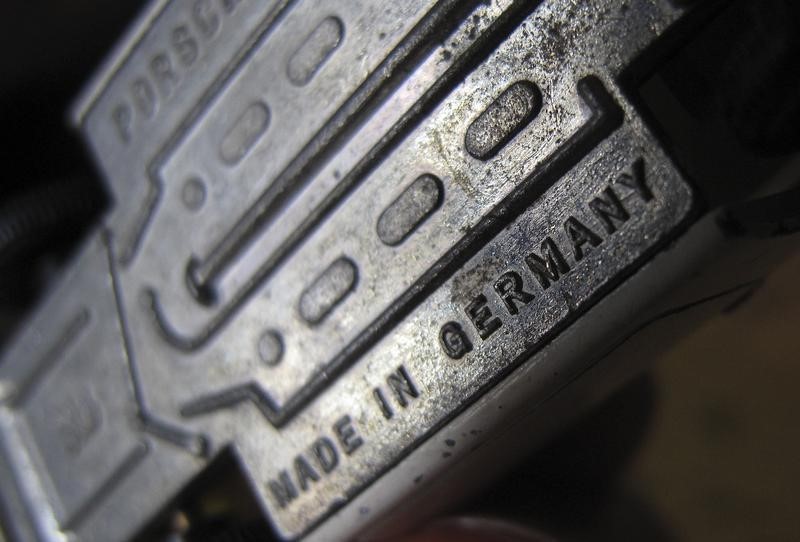BERLIN (Reuters) - German manufacturing export sales and new orders grew at their slowest pace in more than two years in June, a survey showed on Monday, adding to signs the sector is cooling as fears of a full-blown global trade war cloud the economic outlook.
Markit's Purchasing Managers' Index (PMI) for manufacturing, which accounts for about a fifth of the economy, fell to 55.9 from 56.9 in May. That matched a preliminary reading.
The sixth consecutive monthly fall from a record high in December produced the lowest figure in 18 months.
While the headline number held well above the 50 line that separates growth from contraction, the rate of expansion in new orders was the weakest since March 2016 and export sales growth was at its lowest in more than two years.
Phil Smith, principal economist at IHS Markit, said the survey pointed to underlying downward pressure on output levels, which have been growing at a higher pace than new orders.
"The question is whether there is worse still to come," he said. "Firms have indeed become less optimistic in their expectations toward output, with tariffs seen as an added headwind to growth in the months ahead."
Data has this year has pointed to a cooling trend in Germany, and while many economists expect consumption to drive a continuation of growth albeit at a slower pace, trade tensions are weighing.
U.S. President Donald Trump has threatened tariffs on European cars on top of duties he imposed on steel imports from the EU.
German business leaders also fear that a trade standoff between China and the U.S. could harm manufacturers who rely on the world's two largest economies for growth.
"The sector's overall pace of growth may have shifted down another gear, but that hasn't stopped manufacturers from creating more jobs, with the pick-up in the rate of employment growth one bright spot from June's survey," said Smith.
"A strengthening domestic market will go some way to offset the loss of exports."
